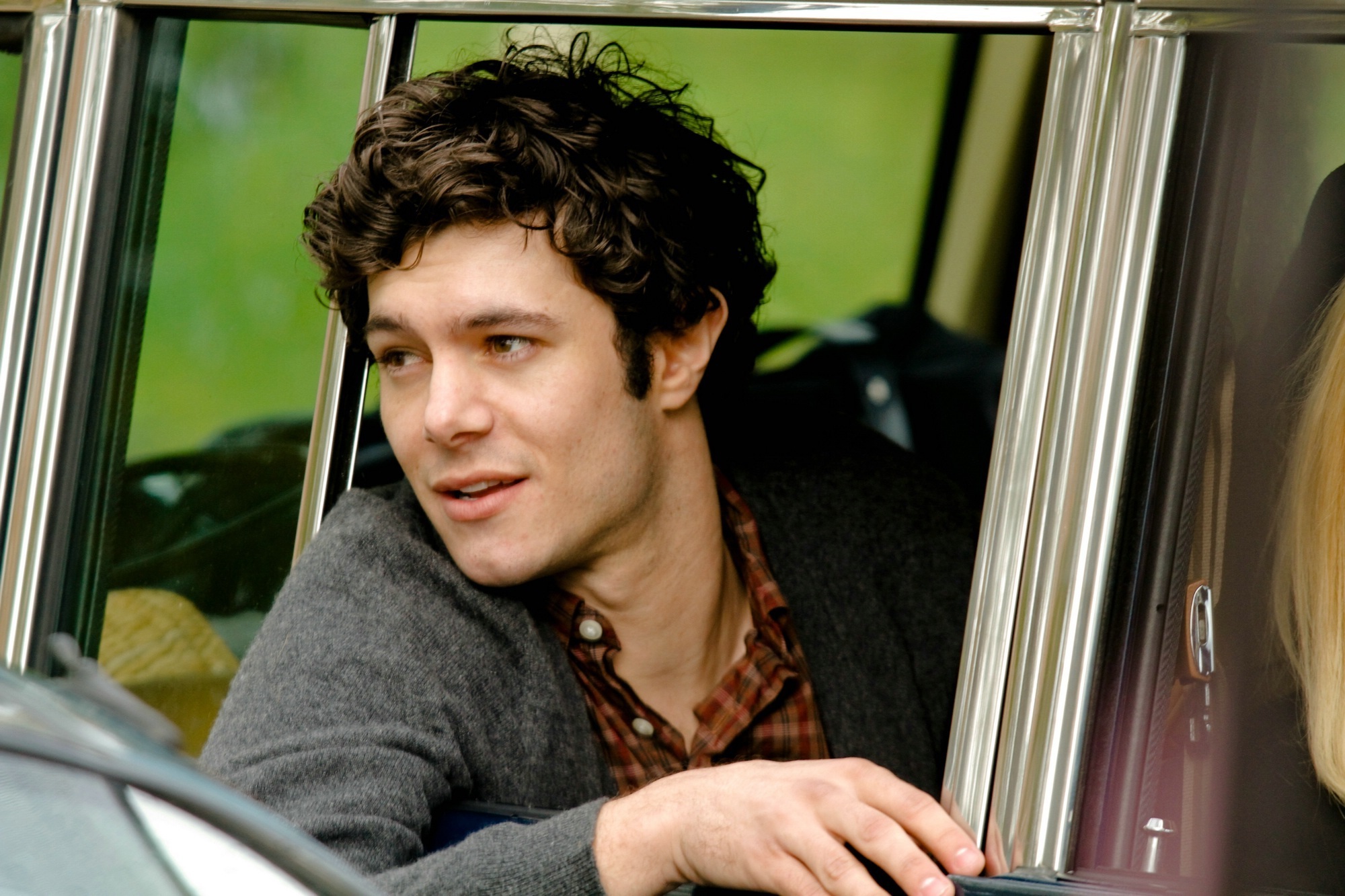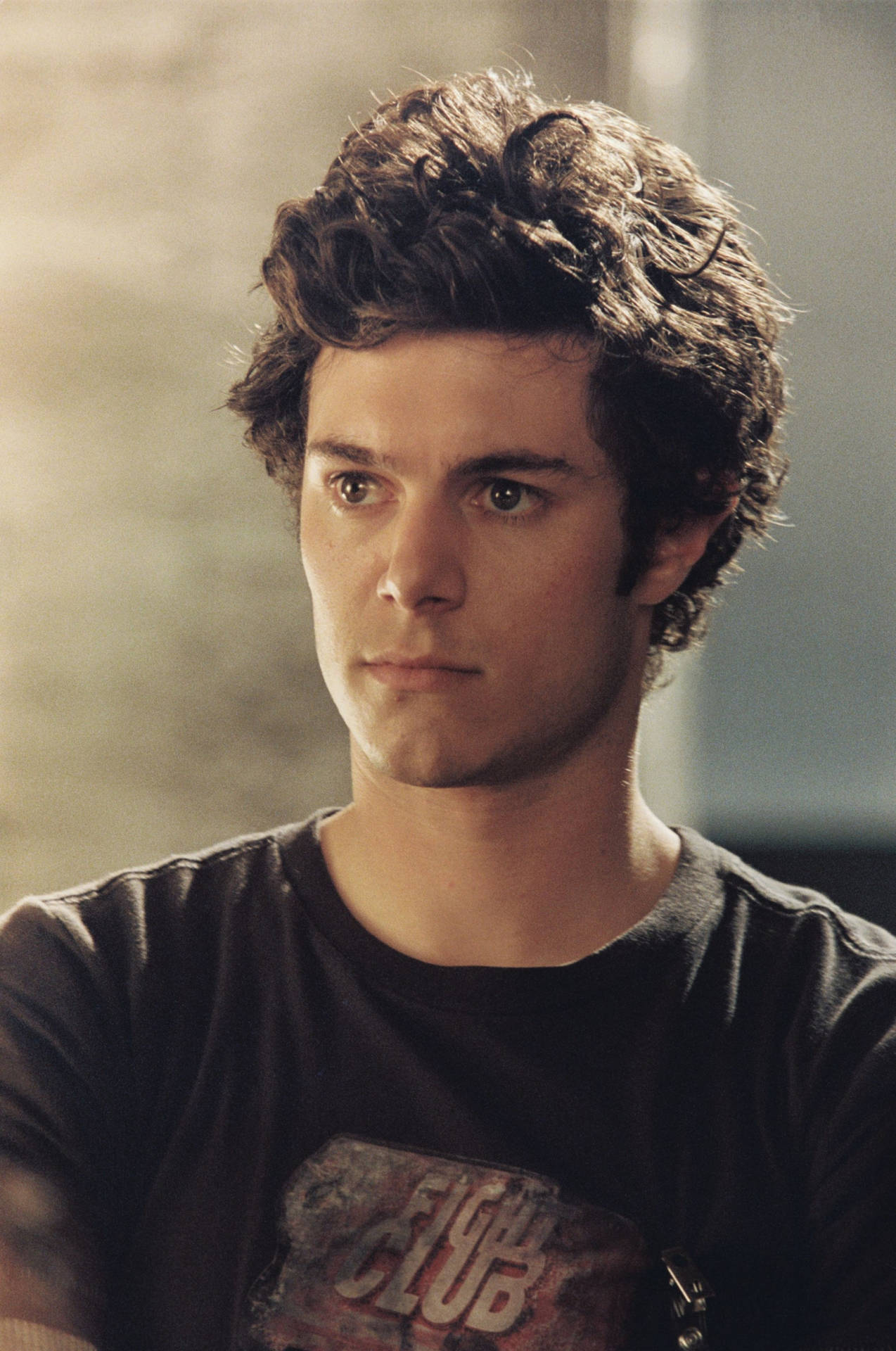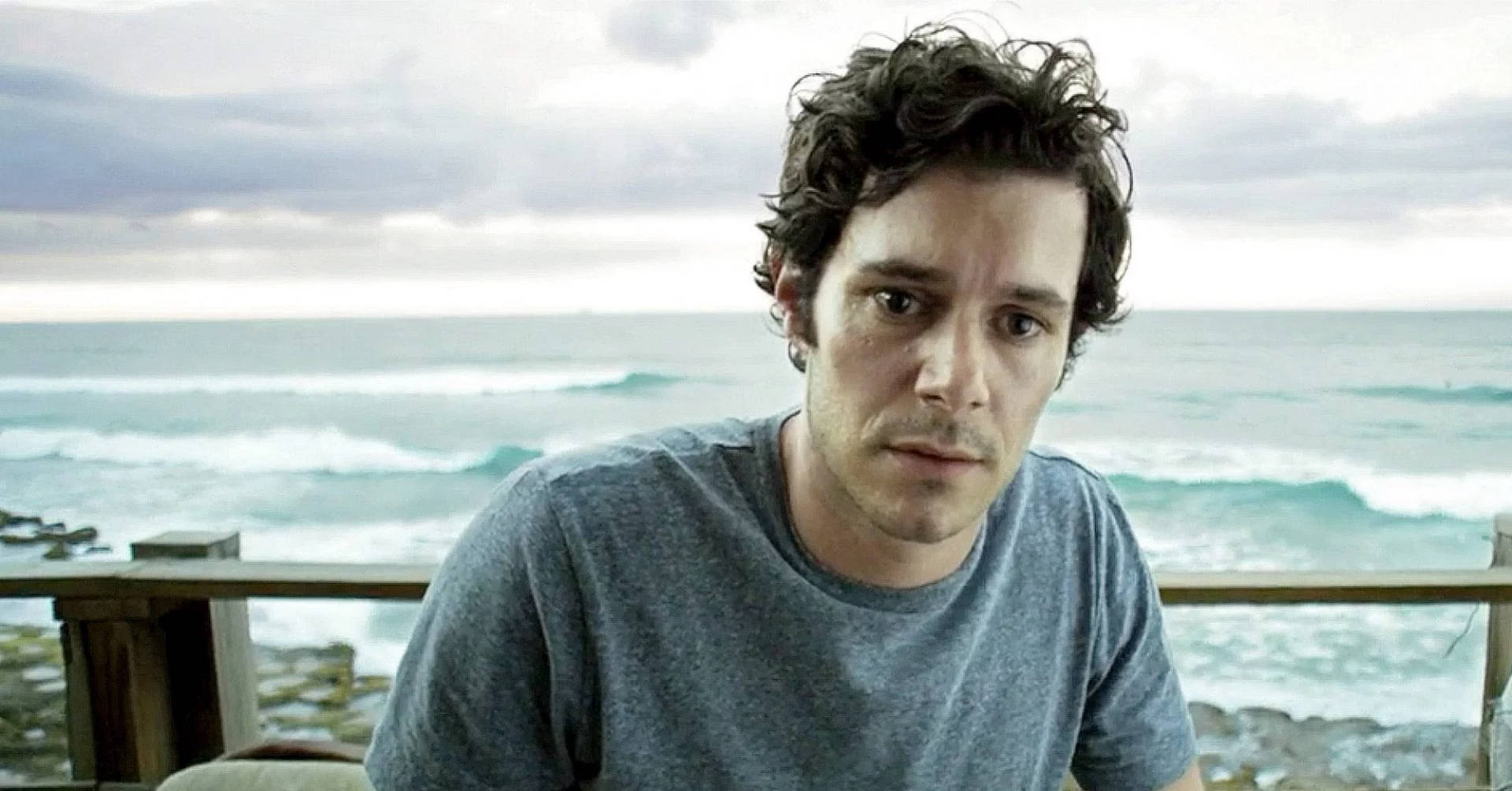Adam Brody Agent: The Unseen Force Behind A Lasting Career
Ever wondered about the quiet champions working behind the curtains for your favorite actors? It's almost fascinating, isn't it, how a performer like Adam Brody has kept a steady presence in Hollywood for so long? His face is familiar from iconic shows and movies, and you might ask, what helps someone stay relevant in such a competitive world? Often, it's the dedicated folks in talent representation, the people who connect the dots and open doors.
For someone like Adam Brody, whose career spans beloved teen dramas to more mature, thought-provoking roles, a solid support system is, you know, pretty vital. It's not just about acting talent; it's also about strategic choices, finding the right projects, and making sure opportunities keep coming. That's where an agent steps in, sort of like a career architect, building pathways for an actor's journey.
This piece will explore the significant role an agent plays in an actor's professional life, using Adam Brody's career as a lens to understand this crucial partnership. We'll look at what an agent does, why they matter so much, and what it means to have strong representation in the entertainment business. So, in some respects, let's peel back the layers and see how these partnerships truly work.
Table of Contents
- Adam Brody: A Quick Look
- The Role of a Talent Agent
- Finding the Right Agent
- Adam Brody's Agent: Who Are They?
- Life Behind the Scenes: An Agent's Daily Grind
- The Future of Talent Representation
- Frequently Asked Questions About Agents
Adam Brody: A Quick Look
Biography and Career Overview
Adam Brody, born in San Diego, California, first caught widespread attention as Seth Cohen in the popular TV series, "The O.C." This role, you know, really made him a household name for a generation. After that, he carefully moved into a variety of film and television projects, showing a broader range than his breakout character suggested. He's appeared in films like "Jennifer's Body," "Scream 4," and "Shazam!" demonstrating, in a way, his versatility.
His career isn't just about big blockbusters; he's also taken on independent films and recurring roles in shows like "StartUp" and "Single Parents." This kind of career path, where an actor balances different types of projects, really speaks to thoughtful career management. It’s not just about being famous; it's about building a body of work that lasts, which is something his representation helps him do, as a matter of fact.
Personal Details and Bio Data
| Full Name | Adam Jared Brody |
| Date of Birth | December 15, 1979 |
| Place of Birth | San Diego, California, USA |
| Occupation | Actor, Musician |
| Spouse | Leighton Meester |
| Known For | Seth Cohen in "The O.C.", "Shazam!", "Ready or Not" |
The Role of a Talent Agent
What an Agent Does
An agent is, basically, an actor's primary business partner. Their main job is to find work for their clients. This means sifting through scripts, getting word about new projects, and suggesting their clients for roles. They are, you know, constantly talking to casting directors, producers, and studio executives. It's a very active role, always looking for the next opportunity for their talent.
Beyond just finding roles, agents are also responsible for negotiating the terms of contracts. This includes everything from salary and billing to specific perks and scheduling. They make sure their client gets fair compensation and that the working conditions are good. It's a bit like being a protector, ensuring the actor's best interests are always front and center, you know, in every deal.
Moreover, an agent provides career guidance. They help actors make choices that will shape their long-term path, not just their next gig. This could mean advising on what roles to take, what skills to develop, or even when to step back for a bit. They are, in a way, mentors who have a deep understanding of the industry's currents and future trends, offering advice that is pretty helpful.
Why Agents are Important
Actors often need agents because agents have access to opportunities that are simply not available to individuals. Major film studios and television networks typically work directly with established agencies, not with unrepresented actors. So, having an agent means getting your foot in the door for auditions and meetings you might otherwise never hear about, which is, honestly, a huge advantage.
Agents also bring a lot of experience and knowledge to the table. They understand the complex legal and financial parts of entertainment contracts. They know what a role is worth, what standard clauses are, and how to spot potential problems. This expertise protects actors from making poor deals or getting into tricky situations, and that's, you know, very important.
Furthermore, agents act as a buffer between the actor and the business side of things. This allows the actor to focus on their craft—acting—rather than getting caught up in negotiations or administrative tasks. It helps maintain a certain level of creative freedom and reduces stress, which is, basically, a great thing for any artist.
The Agent-Client Relationship
The bond between an agent and their client is built on trust and mutual respect. It's a partnership where both sides work towards a shared goal: the actor's successful career. The agent needs to believe in the actor's talent, and the actor needs to trust that their agent is truly working for their best interests. This is, you know, a pretty personal connection.
Good communication is, naturally, key. Agents and clients need to talk openly about career goals, preferences, and concerns. Regular check-ins and honest feedback help keep the relationship strong and ensure everyone is on the same page. It's a collaborative effort, where decisions are made together, which is, like, really important for long-term success.
Finding the Right Agent
For an Actor: Getting Noticed
For an actor hoping to land an agent, it's often about building a strong foundation first. This means getting solid training, performing in local productions, student films, or independent projects, and building a good resume. Having professional headshots and a compelling demo reel are also, you know, pretty essential tools for getting noticed.
Networking plays a big part too. Attending industry events, meeting casting directors, and getting referrals from others in the business can open doors. Sometimes, agents will attend showcases or performances specifically to scout new talent. It's about being seen and making connections, which is, you know, often how these things happen.
What Agents Look For
When an agent considers taking on a new client, they look for a combination of things. Talent is, obviously, at the top of the list. They want to see genuine acting ability and a unique presence. But it's not just about raw talent; they also assess an actor's work ethic and commitment to their craft. They want someone who is serious about their career, which is, like, a really big deal.
Marketability is another crucial factor. Agents think about where an actor might fit in the current industry landscape. Do they have a specific type or a broad appeal? Is there a clear path for them to get roles? They're looking for someone who has the potential to book work and, you know, really make a mark. It's a business decision, after all, and they need to see a return on their investment of time and effort.
Adam Brody's Agent: Who Are They?
While specific agents can change over time, and these details are often kept private, actors of Adam Brody's standing are typically represented by one of the major talent agencies in Hollywood. These big agencies, like William Morris Endeavor (WME) or Creative Artists Agency (CAA), are, you know, very powerful forces in the entertainment world. They have huge networks and represent a wide range of talent, from actors to writers to musicians. It's a bit like being part of a very exclusive club.
Adam Brody has, for a significant part of his career, been associated with William Morris Endeavor (WME). WME is, honestly, one of the largest and most influential talent agencies globally. They have a vast reach across film, television, music, sports, and digital content. Being represented by such an agency means having access to top-tier projects and the best negotiators in the business. It’s, in a way, a mark of an actor’s established status.
The Impact of a Top Agency
Being with a top-tier agency provides an actor with incredible reach and influence. These agencies have long-standing relationships with studios, directors, and producers. This means their clients are often among the first to be considered for major roles. It's, like, a significant advantage in a very crowded field.
Such agencies also have specialized departments, from film and TV to commercial and voice-over. This means an actor can explore various avenues of work, expanding their brand and income streams. It's a comprehensive support system that covers nearly every aspect of an actor's professional life, which is, you know, pretty helpful for a long career.
Evolution of Representation
The role of agents has, in some respects, changed quite a bit over the years. With the rise of streaming platforms and social media, agents now help clients navigate new types of deals and opportunities. They might advise on building an online presence or creating content for digital platforms. It's not just about traditional film and TV anymore, which is, like, a very interesting shift.
Agents also play a bigger part in shaping an actor's personal brand. They might work with publicists and marketing teams to ensure an actor's image aligns with their career goals. It’s a more holistic approach to career management, reflecting the broader changes in the entertainment business. This means, you know, they're always adapting to new challenges.
Life Behind the Scenes: An Agent's Daily Grind
Negotiations and Deals
An agent's day is, often, filled with negotiations. They might be on the phone for hours, discussing terms for a film role, a commercial, or a guest appearance on a TV show. These talks involve not just money, but also things like how an actor's name will appear in credits, what their travel arrangements will be, and how much time off they get. It's a very detailed process, and they have to be pretty sharp to get the best deal.
They also review countless contracts, making sure every clause is fair and protects their client. This means understanding complex legal language and knowing when to push back or suggest changes. It's a job that requires a lot of patience and attention to detail, which is, honestly, quite a lot of work.
Managing Public Image
While publicists handle the day-to-day media interactions, agents work closely with them to guide an actor's public image. They might advise on which interviews to give, what events to attend, or how to respond to public scrutiny. It's about maintaining a positive perception that supports the actor's career goals. This is, you know, a very delicate balance.
They also help manage an actor's brand endorsements and partnerships. This involves finding suitable brands that align with the actor's values and negotiating those deals. It's another way an agent helps an actor build a diverse and sustainable career, which is, like, really smart.
Crisis Management
Sometimes, an agent's job involves navigating difficult situations, such as public controversies or career setbacks. They might work with legal teams and public relations experts to mitigate damage and guide the actor through tough times. It's a less glamorous but very important part of their role, providing crucial support when things go wrong, and that's, you know, very helpful.
They also help actors bounce back from roles that didn't quite work out or periods of unemployment. They offer encouragement and help strategize the next steps to get the actor back on track. It's a long game, and an agent is there for the ups and downs, which is, basically, what a true partner does.
The Future of Talent Representation
Digital Age Influence
The digital age has, in a way, reshaped talent representation. Social media platforms have become powerful tools for actors to connect with fans and showcase their personalities. Agents now help clients use these platforms effectively, turning online presence into career opportunities. It's a whole new frontier for building a brand, which is, you know, pretty exciting.
Streaming services have also changed the game, creating more content and more demand for actors. Agents are adapting to new deal structures and distribution models that come with these platforms. They are, in a way, at the forefront of this shift, helping their clients make the most of these new avenues for work.
Shifting Industry Norms
The entertainment industry is, honestly, always changing, with a growing focus on diversity and inclusive storytelling. Agents are increasingly looking for and developing talent from underrepresented groups, helping to bring new voices and perspectives to the screen. This is a very positive trend that agents are helping to drive.
There's also a greater emphasis on actors having multiple skills, like writing, directing, or producing. Agents often encourage and support their clients in exploring these other creative roles, helping them become multi-hyphenates. It's about empowering actors to have more control over their careers and create their own opportunities, which is, like, a really good thing for artists.
Frequently Asked Questions About Agents
Do all actors have agents?
No, not all actors have agents, especially those just starting out or working in smaller local productions. However, for actors who want to work in major film and television projects, having an agent is almost always a necessity. Agents provide access and negotiation power that unrepresented actors typically lack, which is, you know, a big part of why they're so sought after.
How do agents get paid?
Talent agents typically earn a commission, which is a percentage of their client's earnings from projects they help secure. This commission usually ranges from 10% to 20%, depending on the agent and the type of work. So, basically, an agent only gets paid when their client gets paid, which means they are very motivated to find work for their clients.
What's the difference between an agent and a manager?
While both agents and managers help guide an actor's career, their roles are distinct. Agents are licensed and primarily focus on finding work and negotiating deals. Managers, on the other hand, offer broader career guidance, help with strategic planning, and often advise on personal and creative choices. You know, a manager might help an actor decide what kind of roles to pursue, while an agent helps them get those specific roles.
To learn more about talent representation, you can explore other resources on our site. And to understand the business side of Hollywood, consider checking out this page WME Agency for insights into major agencies.
So, as we've seen, the role of an agent for an actor like Adam Brody is, you know, truly significant. They are the unseen architects, the tireless negotiators, and the strategic partners who help shape and sustain a career in the demanding world of entertainment. From finding the right roles to managing public image and navigating industry changes, an agent is, basically, an indispensable ally. Their work ensures that actors can focus on their art, while the business side is handled with expertise and care. It’s a partnership that truly makes a difference, allowing talent to shine and careers to flourish for many years.

Adam Brody Wallpapers Images Photos Pictures Backgrounds

Top 999+ Adam Brody Wallpapers Full HD, 4K Free to Use

Top 999+ Adam Brody Wallpapers Full HD, 4K Free to Use